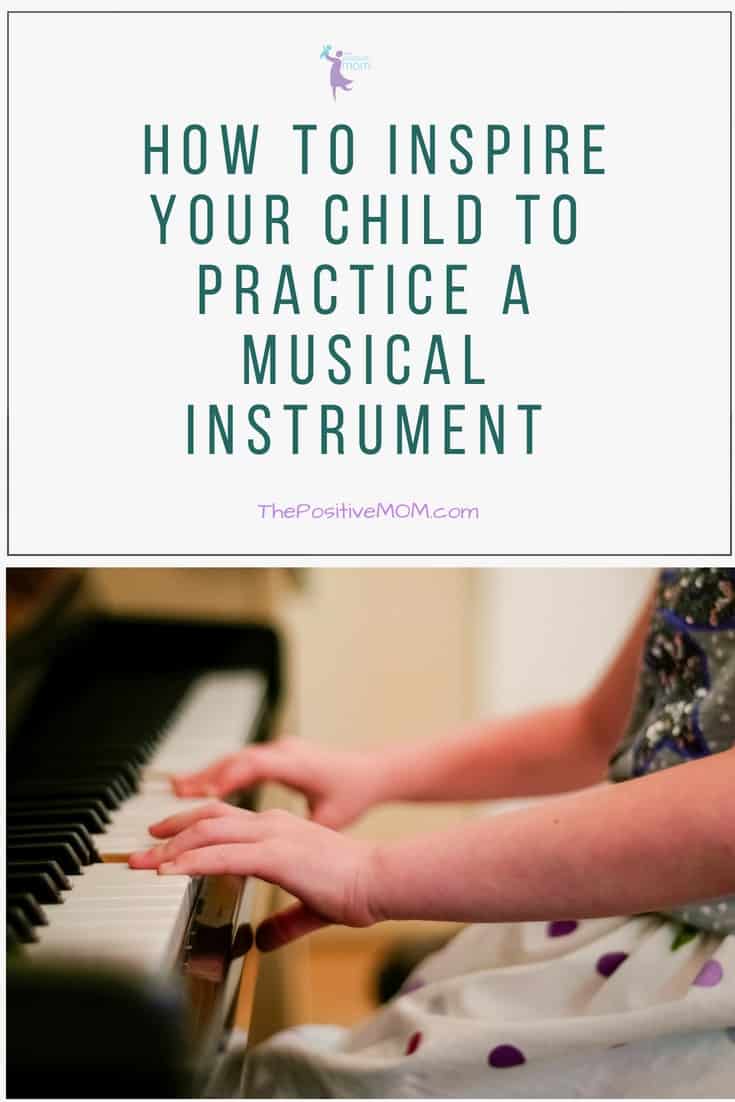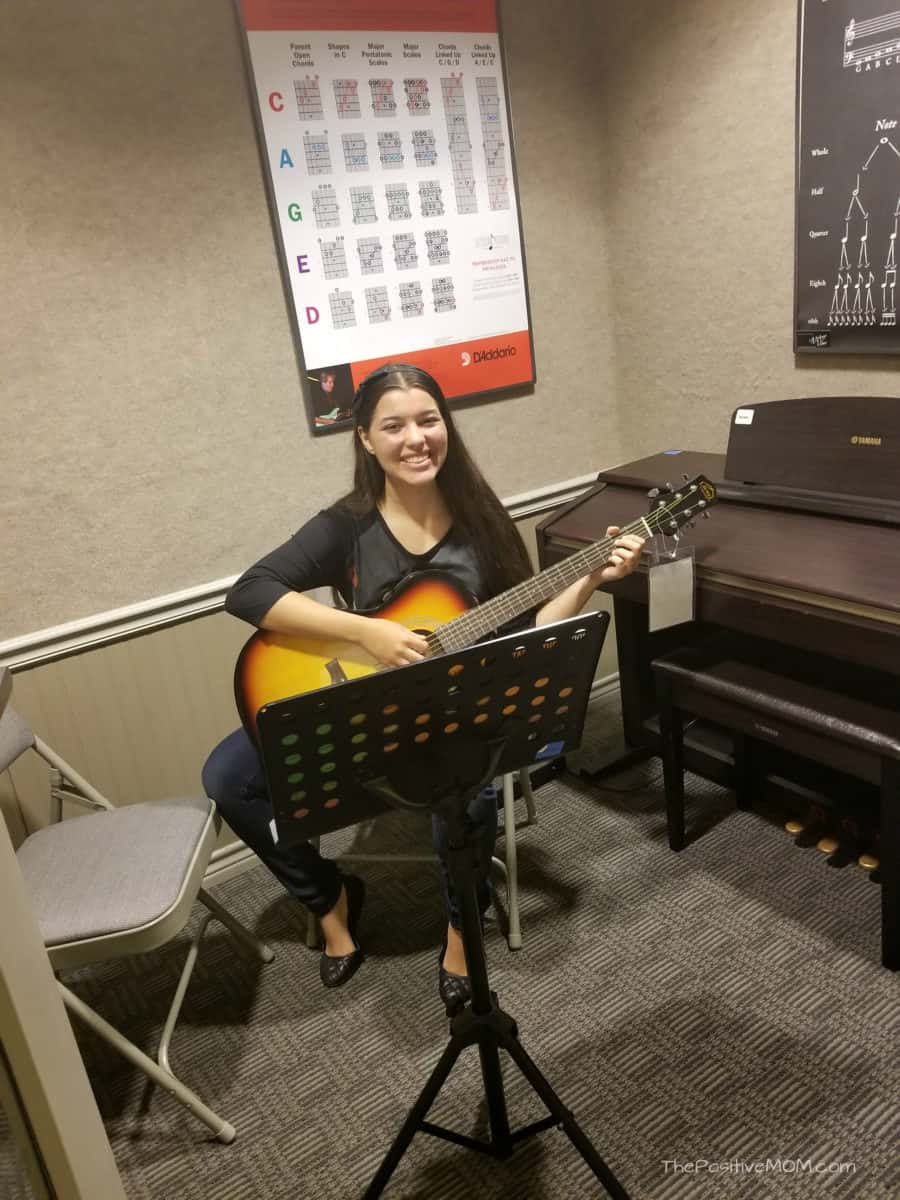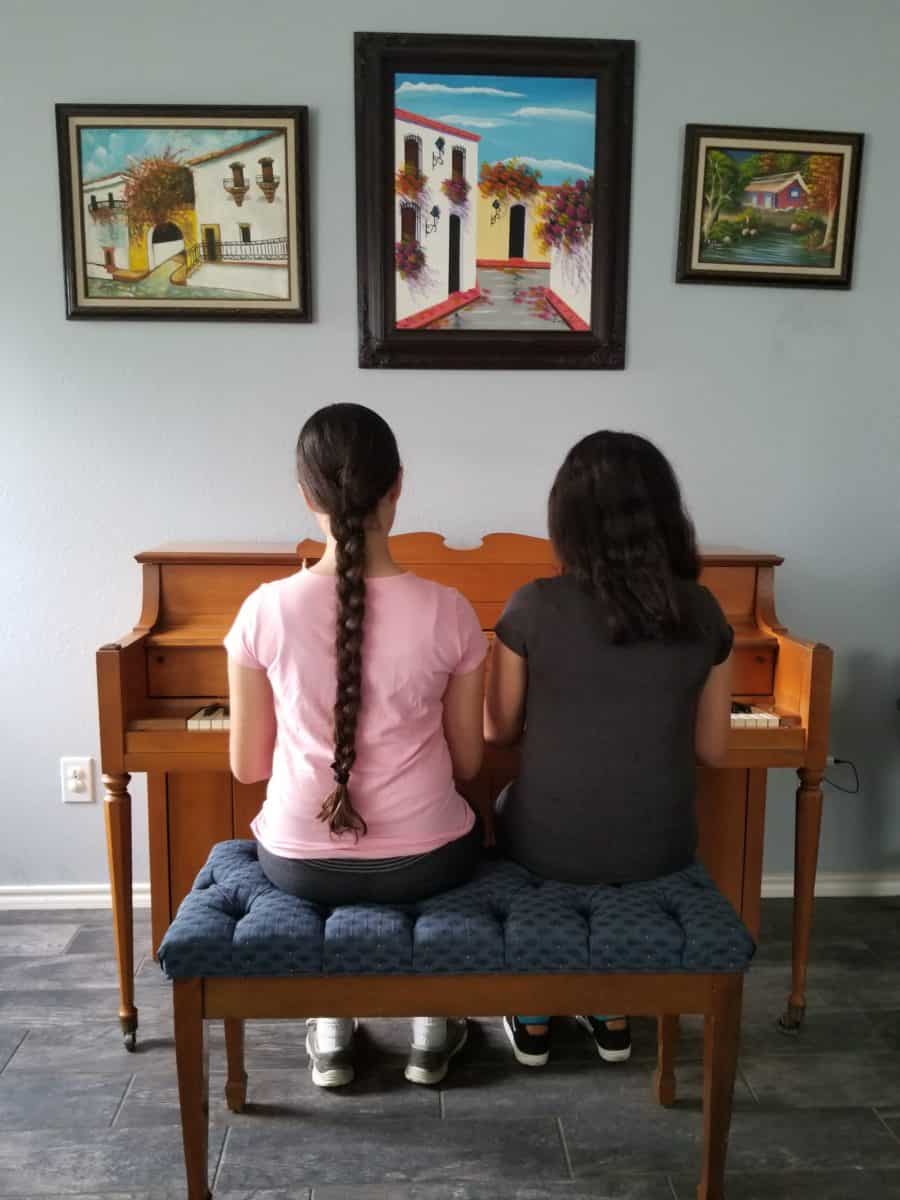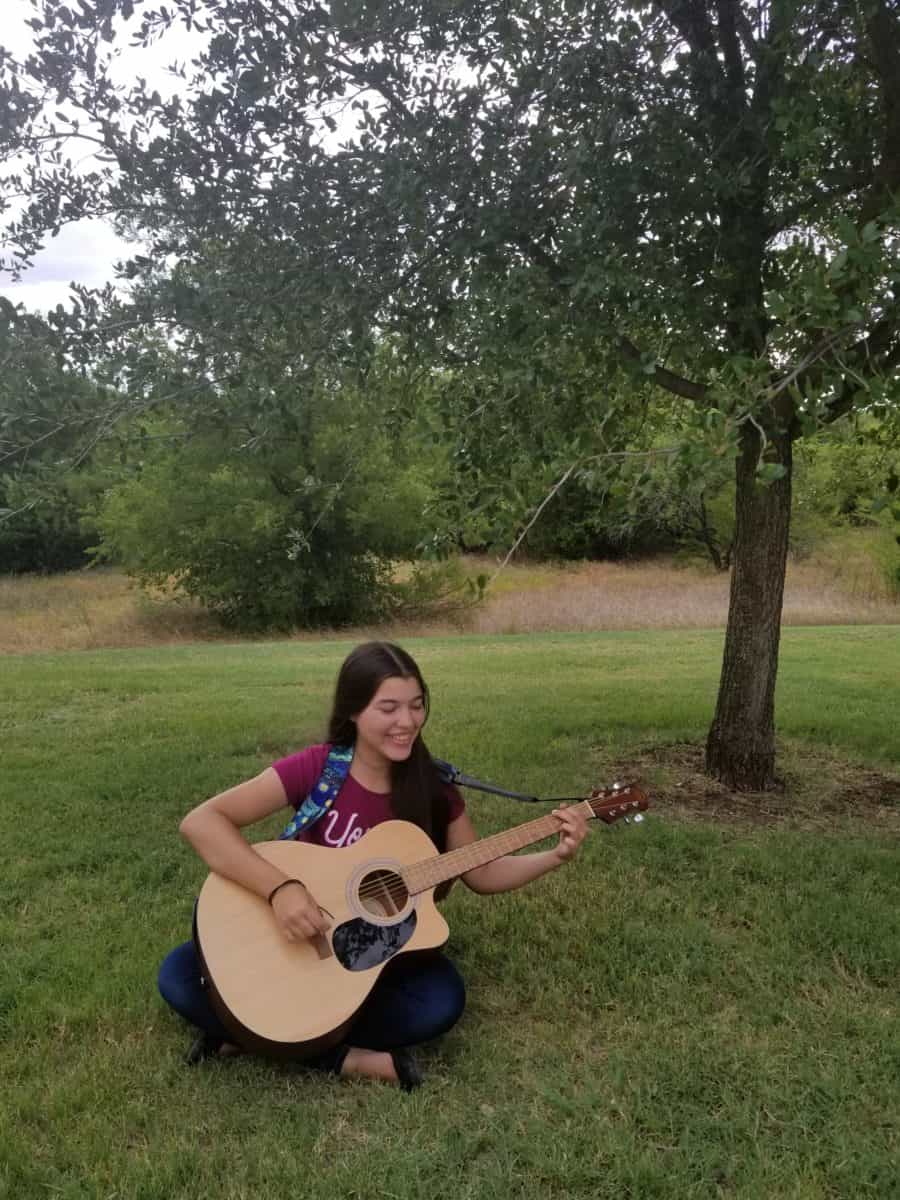
It’s back to school and students are transitioning from all the Summer fun into a regular routine to get back into the groove for the new school year.
If your child was in band or chorus or, like mine, simply love making music, you probably want to make sure they start practicing regularly so they can be successful in playing the musical instrument of their choice.
Because music is a language, it’s important for your music student to immerse in it. But practicing a musical instrument regularly requires discipline and intrinsic motivation, and many moms struggle to help a child take ownership of music practice, or what is worse, they become tiger moms and get the opposite results.

My daughters have been practicing music for many years, without tantrums or tears and I’ve been enjoying the process, without having to resort to threats, tricks, or treats.
- Would you be better at a project you’re working on if your boss or client yells at you?
- Would bribes make you fall in love with doing something you find pointless and plain boring?
- Would your performance magically improve if someone threatens to take something away from you?
I didn’t think so.
I cringe when people ask me “How do you get your kids to practice their music?” I don’t get my kids to do anything – they are not puppets! Instead, I am intentional about encouraging my daughters to make music and inspiring them to practice regularly so they can be proud of the music they make.
How To Inspire Your Child To Practice A Musical Instrument
In reflecting on what has made my daughter practice time successful, painless, and stress-free, I identified 3 main ways in which I have contributed and how you can too!
Learn Your Child’s Learning Style
According to the the VARK model, there are four primary types of learners: visual, auditory, reading/writing, and kinesthetic, and your music student will respond best to a method of teaching that addresses their learning style.
I’ve invested in piano lessons, guitar lessons, and voice lessons for both Elisha and Elyssa, but their pace, focus, and practice style couldn’t be any more different.
Knowing your child’s learning style will help you discern whether you will need to incorporate more recitation, hands-on activities, visual aids, going to concerts, playing at recitals, or written materials (such as music theory) into the practice, make music practice, and rehearsal more engaging.

Trying to get a child to learn music or in a different learning style than their own, is not only boring and ineffective but can be quite intimidating and cause a great deal of anxiety.
Learn Your Child’s Level Of Independence
Practicing a musical instrument can help your child become more self-disciplined if you don’t get in the way. I always say that when you try to control, things get out of control, because no one likes to be forced to play a musical instrument – or to do anything, for that matter.
Even though some kids prefer more parental involvement than others, all kids need a sense of freedom and a sense of choice. It may seem contradictory, but the more you hover over your children, the less motivation they will have to practice or even play their instrument.
It’s tricky to find the right balance, so what I’ve done is rely on the experts: my daughters! You can ask your child how they prefer you support them. Do they want you to ask questions (not the same as interrogate), to remind them when it’s time to practice, to set a regular time for practice or to do it routine style (i.e. after homework, before dinner, etc.), or do they want you to create a checklist or chart and allow them to take full ownership of when/how to practice?
I used to be a Suzuki parent, so my level of involvement was as high as can be; however, my involvement now that the girls have established habits and have grown into very independent musicians has been reduced to driving them to music lessons, purchasing or renting instruments, and paying for lessons and repairs. They take care of the rest!
I tell my daughters my job is to work myself out of a job because I want them to take ownership in every area of their lives. I’m so grateful that music education is an ideal vehicle to teach this skill.
Learn Your Child’s Appreciation Language
Musical education takes a lot of time, energy, and effort, so even though we want to stay away from bribes and mindless praise, we do want to make sure our child feels their investment is worthwhile.

Some kids feel appreciated through words of affirmation, physical touch, quality time, gifts, or acts of service, so knowing what works for a particular child can save you headaches, frustration, and even money.
But beware of entering into a transaction when a child practices or they will only be motivated by external stimulus. Instead of celebrating, let’s say, 30 minutes of practice, celebrate progress, agility, discipline, perseverance, proper care of their instrument, patience, dedication, ability to manage emotions in the face of a perceived failure or mistake, gratitude, and other character-based achievements.
Knowing my children’s love language helps me be involved in their music practice in a meaningful way, too.
For example, Elisha needs me to listen to her talk about her musical journey and have me sit with her while she demonstrates what she is learning, Elyssa just needs ample time alone to compose new songs. Elisha enjoys verbal praise and Elyssa doesn’t really need it.

As a parent, you play a vital role in your child’s success at playing a musical instrument and practicing consistently. and at supporting their music education, whether for the music programs at school or their private instruction.
Once you know your child’s learning style, preferred level of involvement, and love language, you can communicate these to the music teacher, so s/he can set attainable goals and create a safe environment in which your child can thrive.
I love the Music & Arts in-store lesson studios because my daughters have access to highly educated music teachers who provide personalized attention. Music & Arts is your one-stop shop for all your back-to-school music needs, helping you give your student the tools to be a successful musician, available both online and in-store ( 180+ Music Stores throughout the country, and over 130,000 products on MusicArts.com).
As Music & Arts students, we get a discount on music books, music accessories, music supplies, and music gear. Music & Arts also has the nation’s largest instrument repair network and the largest musical instrument rental program in the country, with convenient, flexible rental plans at competitive prices and trusted by both parents and educators.
You can visit the Music & Arts store for more information and follow Music & Arts on Twitter and Instagram and like on Facebook. You can also join the conversation on social media with #BackToSchool.
Founder of the Positive MOM® and creator of the S.T.O.R.Y. System: a blueprint to craft and share powerful stories that will transform your results and help others do the same. Dr. Elayna Fernández is a single mom of 4, an award-winning Storyteller, Story Strategist, and Student of Pain. She’s a bestselling author, internationally acclaimed keynote speaker, and 5x TEDx speaker. She has spoken at the United Nations, received the President’s Volunteer Lifetime Achievement Award, and was selected as one of the Top Impactful Leaders and a Woman of Influence by SUCCESS Magazine. Connect with Elayna at thepositivemom.com/ef and follow @thepositivemom. To receive a gift from Elayna, click HERE.

Want to support the Positive MOM blog?
The mission of the Positive MOM blog is to help moms break trauma cycles, find peace, and feel emotionally whole, so they can practice supportive parenting and create a positive and healthy environment for their children. If you found Elayna’s content valuable, please consider donating a love offering to enable her to keep creating content and helping more moms worldwide. Donate HERE.

Marcie
Friday 28th of September 2018
It's so important that kids have their own desire to learn and the discipline to practice.
Twinspirational
Friday 31st of August 2018
Our nephew is learning the piano. Music is so important. We wish we knew how to play an instrument.
Aditi
Thursday 30th of August 2018
Such thoughtful and beautiful tips you've got there. Music helps children in ways more than one. I have been trying to lure my nephew into picking up a new form of music. Let's hope he does so this year. Cheers!!
Danielle
Thursday 30th of August 2018
These are all such great tips. My son hasn’t shown an interest in playing an instrument but maybe soon.
Fibi Drese
Thursday 30th of August 2018
I dont have a kid yet but I will share this article with my fd